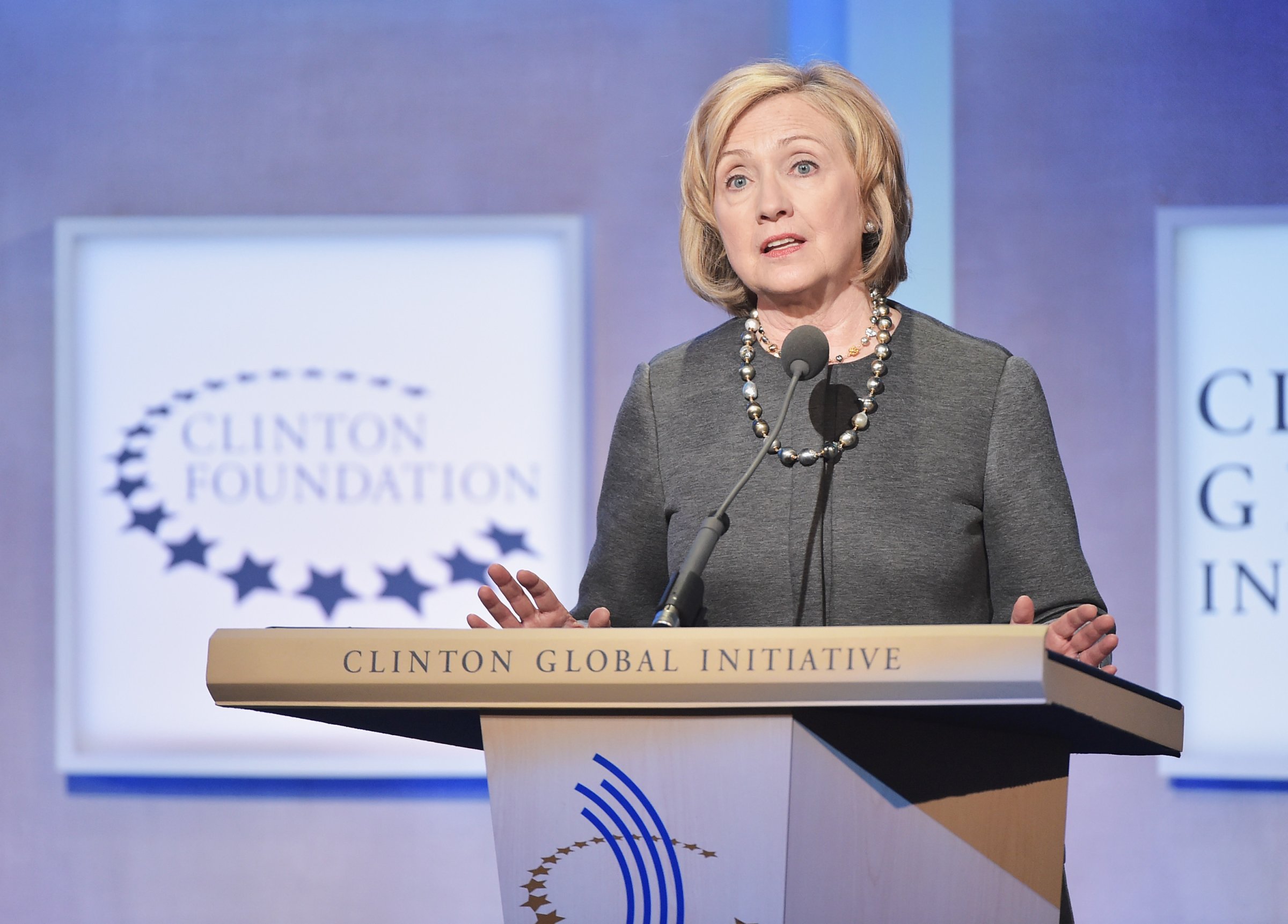
On Wednesday morning, Hillary Clinton and Former Australian Prime Minister Julia Gillard announced a new Clinton Global Initiative commitment with the Center on Universal Education at the Brookings Institution for girls’ education called CHARGE (The Collaborative for Harnessing Ambition and Resources for Girls Education). The initiative will include 30 other partners, including governments like the United States and organizations from the private sector, committing $600 million to reach 14 million girls around the world in the next five years.
“It’s time to both celebrate the progress we’ve made and redouble our efforts,” said Clinton at the announcement.
Gillard, a fellow at the Brookings Institution, approached Secretary Clinton and Chelsea Clinton a year ago to work together on the initiative. “I think across the world, as we talk about women in developing countries, there’s been increasing recognition that empowering women and girls is a key change agent for development. There have been some truly shocking incidents that have caused us to have tears in our eyes and sharply intake our breath—what happened to Malala, what has happened with the Nigerian schoolgirls—that powerfully remind us that in some part of the world, getting an education is still a very dangerous thing for a girl,” Gillard told TIME. “It’s being targeted because it’s powerful. Education is powerful, which is why some people want to stop it and why we should feel so passionate about assuring that it occurs.”
Up until now, world leaders have focused on enrolling girls in primary school at the same rate as boys. And though the rate of female enrollment in primary school has risen from less than half to nearly 80% in the last 25 years, issues of quality and safety still persist. The Girls CHARGE initiative aims to address what they are calling a “second generation” of girls’ issues especially in Sub-Saharan Africa and South West Asia. And while incidents like the kidnapping in Nigeria of more than 200 school girls by the radical group Boko Haram are extreme, they are emblematic of the harsh realities of educating girls in some parts of the world.
CHARGE has five main goals:
1. Keep girls in school
2. Ensure school safety and security
3. Improve quality of learning for girls
4. Support transitions from and out of school
5. Support girls’ education leaders/workers in developing countries to fulfill these goals
Partners of CHARGE are taking different steps in specific regions to reach these goals. The government of Nepal is committing $29 million to the cause and providing bicycles to girls to ensure girls can get to and from school. The BRAC organization is establishing 8,000 adolescent girl clubs in Bangladesh by 2019 to provide safe spaces for girls, among other efforts.
The Clinton Global Initiative and Brookings will evaluate the progress of the organizations towards their goals over the course of the next five years. Any government that wants to join the effort can.
Developing nations must work towards gender equality in education to improve their economy: Educated women add to family income by working, and their children are more likely to become educated themselves. But those girls most desperately in need live in countries where the governments don’t want to cooperate with initiatives like this one. “That’s obviously a huge challenge,” Rachel Vogelstein of the Clinton Foundation’s No Ceilings Initiative told TIME. “We’re hoping to work with our partners and civil society organizations to cultivate leaders on a grassroots level in those locations.”
But even as Clinton and Gillard look to empower women across the globe, they recognize that there are still equality gaps in the Western World as well. Both Gillard and Clinton have faced misogyny throughout their political careers. Gillard points out that women in countries like the United States and Australia cannot settle and must still fight for progress:
“My own perspective is that in many places around the world—Australia, here in the United States—after the big push of the second wave of feminism in our own nations, there was the assumption made that naturally gender change was happening and everything would equalize. I think in recent years there’s been a realization that no, there are still problems in our own nations, including domestic violence, that require a dedicated focus and approach. The dialogue both in Australia and the United States must still include questions of political leadership, corporate leadership, civil society leadership where doors still need to be opened for women.”
More Must-Reads From TIME
- The 100 Most Influential People of 2024
- Coco Gauff Is Playing for Herself Now
- Scenes From Pro-Palestinian Encampments Across U.S. Universities
- 6 Compliments That Land Every Time
- If You're Dating Right Now , You're Brave: Column
- The AI That Could Heal a Divided Internet
- Fallout Is a Brilliant Model for the Future of Video Game Adaptations
- Want Weekly Recs on What to Watch, Read, and More? Sign Up for Worth Your Time
Write to Eliana Dockterman at eliana.dockterman@time.com